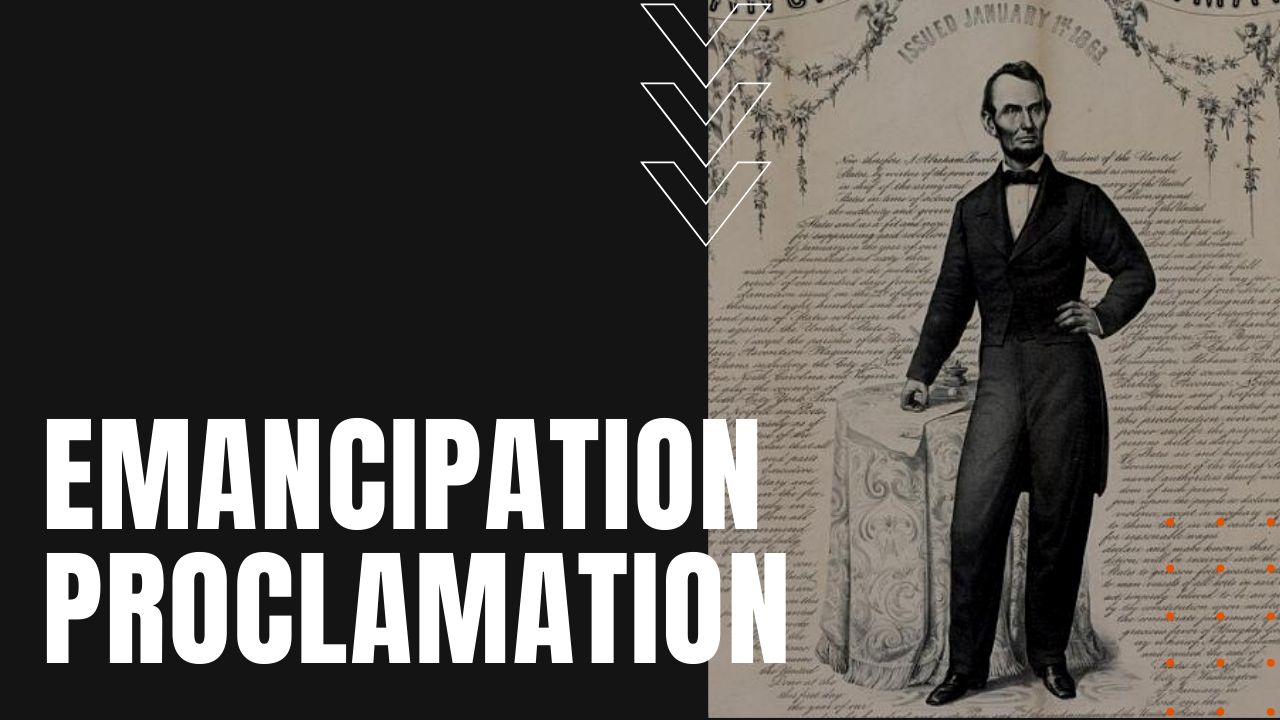What is the Emancipation Proclamation? Lincoln’s 100-Day Ultimatum

The divide over slavery in America goes back decades before the Civil War, prompting Abraham Lincoln to declare in a landmark 1854 speech that:
“If the negro is a man, why then my ancient faith teaches me that ‘all men are created equal;’ and that there can be no moral right in connection with one man’s making a slave of another.”
Abraham Lincoln
Militia and Confiscation Acts
After hostilities broke out between the North and the South on April 12th, 1861, Congress passed the Militia Act of 1862, which allowed Black men to serve in the U.S. Army, followed by the Confiscation Act, which stated that all slaves seized from Confederate supporters were immediately made free.
Several days after the Battle of Antietam in September of 1862, Lincoln announced his preliminary Emancipation Proclamation to the public at large, which stated that the Confederate states had 100 days to rejoin the Union, before their slaves would be declared “thenceforward, and forever free.”
When was the Emancipation Proclamation?
When his 100-day warning lapsed without reunification, Lincoln signed his Emancipation Proclamation on January 1st, 1863—New Years Day.
At the same time, Lincoln understood that his decree applied only to territories not currently part of the Union, but his proclamation’s symbolic stand shifted the North’s Civil War objectives from not only preserving the Union as a solitary nation but for the abolition of slavery from American soil.
At the same time, Lincoln’s Emancipation Proclamation also sent a strong message to France and Britain, who had both toyed with the notion of supporting the Confederacy in hopes of regaining a colonial foothold into North American. Realizing that Lincoln’s Emancipation Proclamation would have no constitutional teeth after the end of the Civil War, Lincoln and the U.S. Congress began work on a constitutional amendment, which would formally abolish slavery under federal law.
The 13th Amendment
By the end of January 1865, both houses of Congress had passed the 13th Amendment, formally abolishing slavery or involuntary servitude, which was later ratified into law on December 6th, 1865.
